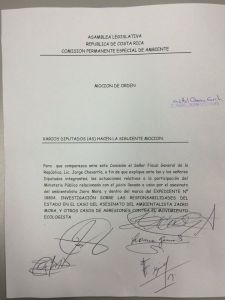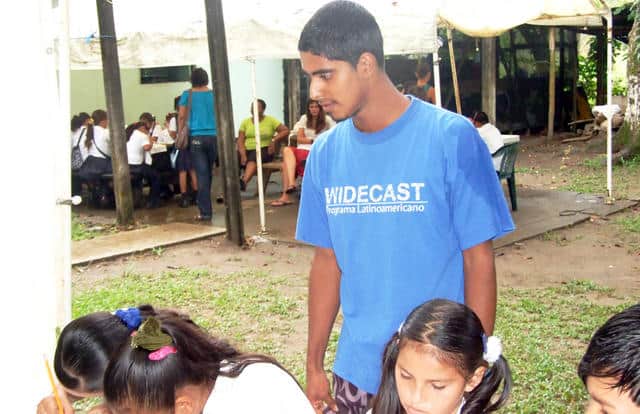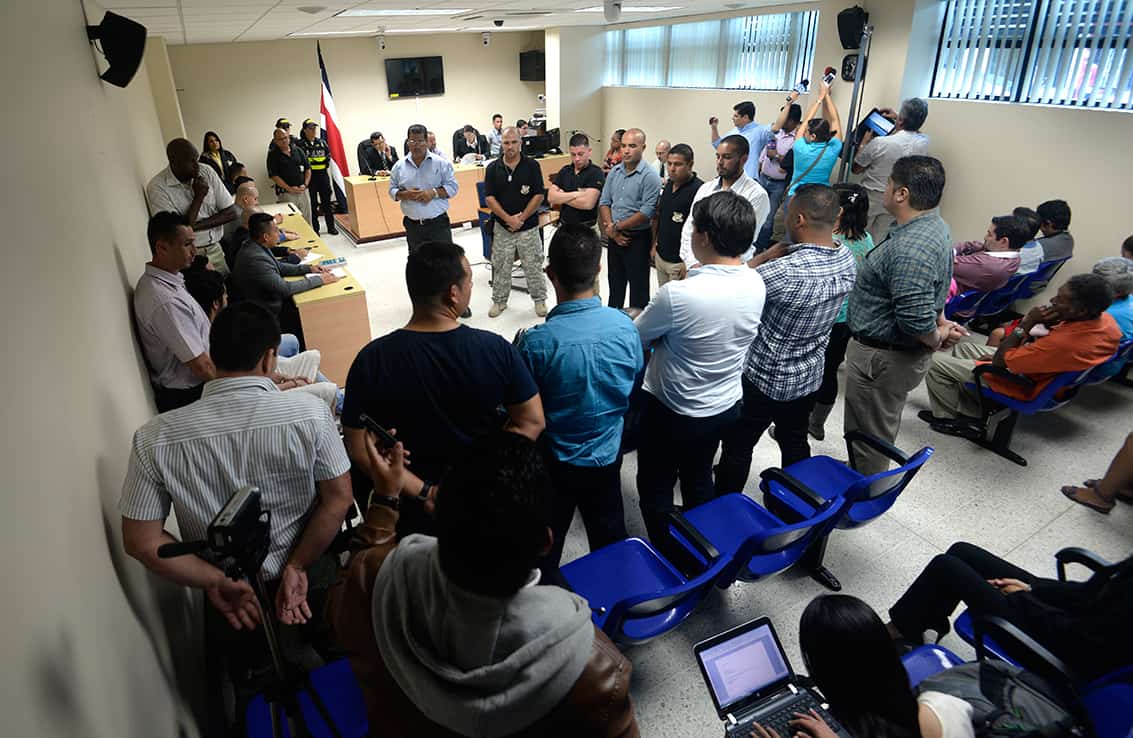LIMÓN — After three months of trial marked by continuous delays and setbacks, a Limón court on Monday morning acquitted seven men of the murder of 26-year-old sea turtle conservationist Jairo Mora on the night of May 31, 2013, citing reasonable doubt, discarded evidence and an ineffective investigation.
Defendants surnamed Arauz, Salmón (brother of defendant Donald Salmón) and Loaiza will walk free, absolved of all crimes, while Hectór Cash, Ernesto Centeno, José Bryan Delgado and Donald Salmón will serve prison sentences for a prior rape and robbery on the same beach. All seven defendants were acquitted of the kidnapping, robbery, sexual assault and murder that took place on the night of May 31, 2013, when Mora was killed.

That night, a band of masked men captured Mora, who worked at a nearby wildlife refuge, along with four foreign volunteers from Moín Beach near Limón, on Costa Rica’s northern Caribbean coast. The group had gone to the beach to collect leatherback sea turtle eggs to rebury them safely away from the poachers that frequented Moín. As the group was returning to the sanctuary, they encountered a log blocking the road, and when Mora exited the car to remove it, he was ambushed by a group of masked men. The men took the four women to an abandoned house, while Mora was taken to the beach, beaten and dragged naked behind a car. He died of asphyxiation in the sand.
Following the verdict, Jairo Mora’s parents, Rafael Mora and Fernanda Sandoval, were too visibly upset to comment to a Tico Times reporter.
The prosecution alleged that the seven defendants were members of a known poaching gang and murdered Mora because of his role protecting turtles on the beach. Judges cited the legal principle of in dubio pro reo, which means the court must rule in favor of defendants when reasonable doubt exists.
In her explanation of the verdict, Judge Yolanda Alvarado said the mishandling of evidence by investigators, prosecutors and preliminary courts contributed to this doubt. She also cited an incomplete investigation that was unable to determine with exactitude the identities of the perpetrators.
“Lamentably the management of evidence broke the chain of proof in this case,” Alvarado said.
That mishandling of evidence led to the exclusion of three key pieces of evidence from the prosecution’s case. These included bottles of cologne that were lost in evidence, a recorded disc of telephone conversations that was not properly reviewed by a preliminary court judge, and cellphone tower investigations that also did not undergo judicial review. The Tico Times had reviewed much of this evidence for a previous in-depth report on the case. Read that related story, “Why Jairo died,” here.
“This failure shows that we have a Prosecutor’s Office in this country that is not functioning properly,” Gerardo Vargas, a Broad Front Party leader, told Costa Rica’s Radio Monumental. “We have a Prosecutor’s Office that doesn’t do a good job. We have a Prosecutor’s Office that doesn’t even try.”

The four defendants convicted of kidnapping, raping and robbing a Costa Rican couple and their young nephews nearly two weeks before Mora’s murder were sentenced as follows:
- Donald Salmón: 27 years in prison for aggravated robbery, rape and kidnapping.
- Héctor Cash: 23 years for aggravated robbery, kidnapping and sexual abuse.
- José Bryan Delgado: 17 years for aggravated robbery and kidnapping.
- Ernesto Centeno: 17 years for aggravated robbery and kidnapping.
According to defense attorney Jadiel Quesada, one primary reason for the not-guilty verdict was that no one was “able to recognize” beyond reasonable doubt the perpetrators and identify them in court.
Quesada told The Tico Times: “It’s very easy to recognize four people when they are in the position [the defendants] were in [at trial] – seated and handcuffed behind their lawyers and surrounded by police agents. In that situation, it’s very easy to point the finger, … which is why we [the defense team] feel the poorly managed investigation should also extend to all the charges in the two cases. But we believe that for social reasons, it was necessary to find someone guilty of something, and for that reason we will appeal [the convictions].”
In a statement issued shortly after the verdict, the Costa Rican Supreme Court noted that the Mora case technically is still “open,” and the same defendants could be re-tried if more evidence is presented that could lead to their convictions. Under Costa Rican law, prosecutors have two opportunities to appeal.
Rodrigo Araya, an attorney representing Mora’s family, told online news site AmeliaRueda.com that he felt “an absolute sense of impunity,” and that he would appeal the ruling, which he said was based on technicalities.
The news site also reported that a protest to denounce the trial’s outcome is scheduled for Thursday, Jan. 29, in front of the court complex in downtown San José.
The Sea Shepherd Conservation Society, which named one of their ships after Mora last year, also released a statement declaring their intention to expand operations to Moín Beach on Costa Rica’s Caribbean coast this year to continue Mora’s work, but Mora’s close friend and fellow sea turtle advocate, Vanessa Lizano, says it’s too late.
“I think it is more hurtful right now for people to try to help when it is just too late,” she told The Tico Times on Monday. “It gets me angrier that they didn’t help before.”
Update, 6:46 p.m., Jan. 26, 2015:
Early Monday evening, Broad Front Party lawmaker Edgardo Araya filed a motion in the Legislative Assembly’s Environmental Commission to call Costa Rica’s Chief Public Prosecutor Jorge Chavarría to testify before the commission regarding “the omissions by the Prosecutor’s Office in the Jairo Mora case,” according to a post on Araya’s Facebook. “No more impunity,” Araya stated.







